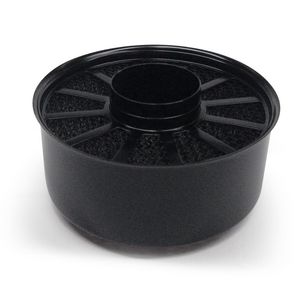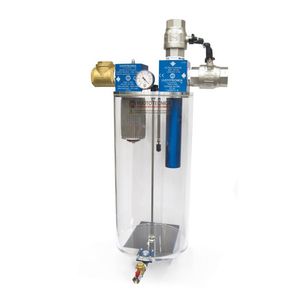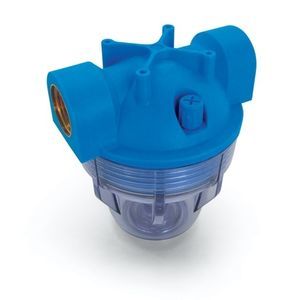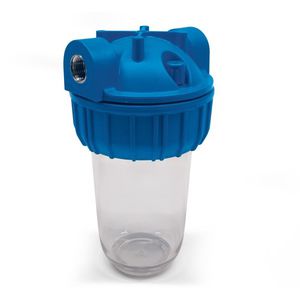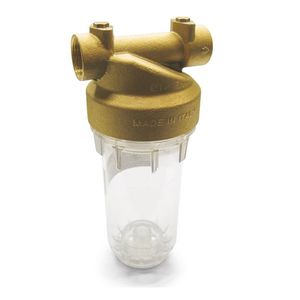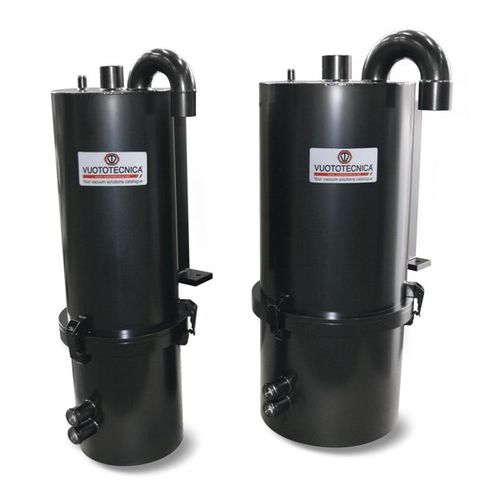
- Company
- Products
- Catalogs
- News & Trends
- Exhibitions
Oil filter FO serieswith cartridgesuctionsteel


Add to favorites
Compare this product
Characteristics
- Designed for
- oil
- Filtration element
- with cartridge
- Applications
- suction
- Material
- steel
- Operating pressure
Min.: 0.5 mbar
(0.007 psi)Max.: 2,000 mbar
(29.008 psi)- Filtration size
1 µm
- Flow
200 m³/h, 300 m³/h
(7,062.933 ft³/h, 10,594.4 ft³/h)- Fluid temperature
Min.: -20 °C
(-4 °F)Max.: 90 °C
(194 °F)
Description
FO long operation autonomy oil-bath suction filters
In presence of fine or impalpable dust, the traditional suction filter would require a cartridge with a filtering degree so high that, along with reducing its operation autonomy, it would also reduce the vacuum pump suction flow rate.
Oil-bath suction filters have been studied in order to overcome this problem.
The main feature of these filters, in addition to their high autonomy, is their ability to retain the finest suctioned impalpable dusts without reducing the suction flow rate of the pump.
Oil-bath filters are composed of a sheet steel head and container coupled with an interposed seal and clamped by release clamps.Inside, besides the oil bowl, there are two steel wool filtering cartridges, one of which is detachable and washable, while the other is fixed. The release clamps guarantee easy access for cleaning operations.
Two visual indicators allow monitoring of the oil level and the degree of clogging.
They can be used with any kind of oil, even drain oil, as long as it has a minimum viscosity degree. The ideal oil is the same one used for the pump.
Oil-bath suction filters are not recommended for dry vacuum pumps.
They are currently available for 200 and 300 m3/h capacities.
Technical features
Operating pressure: from 0.5 to 2000 absolute mbarTemperature of fluid: from -20 to +90°C
Level of filtration: ≤1 μ
Quantity of oil:
FO 160 - 6.3 L
FO 300 - 12.5 L
VIDEO
Catalogs
Vacuum Solutions
882 Pages
Production Programme 2017
112 Pages
Related Searches
- Liquid separator filter
- VUOTOTECNICA cartridge filter
- VUOTOTECNICA filter cartridge
- Stainless steel separator filter
- Fine filter cartridge
- Filter housing
- Cartridge filter housing
- Water filter cartridge
- Liquid filter housing
- Dust pre-filter
- In-line filter
- Pleated pre-filter
- Screw-lock filter
- Pleated filter cartridge
- Air filter cartridge
- Oil separator filter
- Aluminium filter
- Flange-mount filter
- Steel separator filter
- Fine filtration filter
*Prices are pre-tax. They exclude delivery charges and customs duties and do not include additional charges for installation or activation options. Prices are indicative only and may vary by country, with changes to the cost of raw materials and exchange rates.











